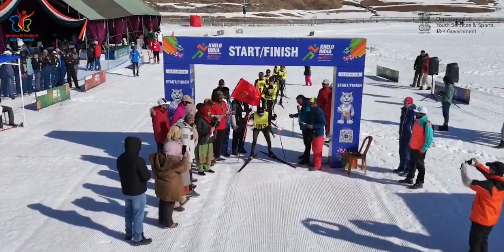In a landmark decision, the Central Administrative Tribunal (CAT) has directed the Jammu and Kashmir Services Selection Board (JKSSB) to permit 241 overage aspirants to participate in the selection process for sub-inspector positions in the police department. However, the results for these aspirants will remain sealed, pending further tribunal orders. This decision addresses long-standing concerns about age restrictions and procedural delays in recruitment processes.
Tribunal’s Directive and Conditions
The CAT’s Jammu bench, comprising Judicial Member Rajinder Singh Dogra and Administrative Member Ram Mohan Johri, ruled that the 241 applicants could participate in the recruitment process at their own risk and responsibility. Their results, however, will be preserved in a sealed cover until the tribunal issues further orders.
Sheikh Shakeel Ahmad, a legal representative for the aspirants, confirmed that the tribunal considered a previous directive from the High Court of J&K and Ladakh. This earlier order permitted the petitioners to partake in the recruitment process under similar conditions.
Background of the Recruitment Process
The JKSSB conducted the sub-inspector recruitment examination on March 27, 2022. The exam aimed to fill 1,200 sub-inspector positions, along with 1,300 junior engineer posts and 1,000 finance account assistant roles. However, in July 2022, the J&K administration canceled the selected lists amid allegations of paper leaks and malpractice.
The Central Bureau of Investigation (CBI), tasked with probing the irregularities, filed a chargesheet against 33 individuals on November 12, 2022. The investigation added a layer of complexity to the recruitment process, further delaying proceedings and compounding the frustrations of aspirants.
Arguments for Age Relaxation
The petitioners, represented by their legal counsel, sought a one-time age relaxation to address the unique circumstances of this recruitment cycle. They argued that public employment is a vital resource, and all eligible candidates have a fundamental right to compete.
In this case, the maximum age for participation was capped at 28 years. However, due to delays attributed to the Home Department’s inaction, these 241 aspirants exceeded the age limit. The lawyers highlighted that the department took more than three years to issue the advertisement following the last selection process.
The legal team also referenced a 2005 government order requiring all administrative secretaries in J&K to refer vacancies annually by January 15 to the JKSSB and J&K Public Service Commission. The delay in adhering to this directive contributed to the age-related disadvantage faced by the applicants.
Sealed Results: What It Means
The tribunal’s decision to keep the results sealed underscores the provisional nature of the participation granted to overage aspirants. While this move ensures their inclusion in the process, it also safeguards the integrity of the recruitment until a final verdict is delivered.
The sealed results approach balances the applicants’ rights to compete with the tribunal’s responsibility to maintain fairness and transparency in the recruitment process.
Read also: JK Police SI Recruitment 2024: Application, Eligibility, and Selection Process
Broader Implications of the Decision
This decision reflects broader issues in the governance and management of public recruitment processes in Jammu and Kashmir. Delays in advertising vacancies and resolving procedural disputes have long-term repercussions, not only for aspirants but also for public trust in government institutions.
The tribunal’s directive highlights the need for systemic reforms to ensure timely advertisement of vacancies and adherence to recruitment timelines. Streamlining these processes would prevent future occurrences of age-related exclusions and reduce legal disputes.
The CAT’s decision to allow overage aspirants to participate in the JKSSB sub-inspector recruitment process is a critical step toward addressing the grievances of affected candidates. While the sealed results condition reflects caution, it provides an opportunity for these aspirants to compete fairly.
Moving forward, the J&K government and JKSSB must focus on improving recruitment mechanisms to ensure transparency, timeliness, and fairness. Such reforms would not only benefit future candidates but also restore public confidence in the region’s employment processes.
The resolution of this case will serve as a benchmark for addressing similar challenges in public recruitment across India, emphasizing the importance of accountability and efficiency in governance.
















